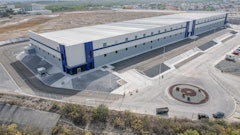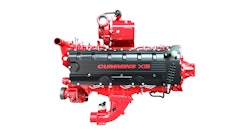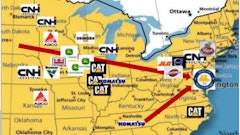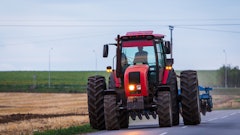The Prairie Agricultural Machinery Institute (PAMI), has announced the results of its vision session aimed at identifying the agriculture industry's innovation needs for the next decade. The event was opened with an address by the Honorable Lyle Stewart, Minister of Agriculture who announced $1 million in funding for PAMI.
The session gathered roughly 30 agriculture leaders from across Saskatchewan to give their input on the future of the industry. The group included representatives from major producer groups as well as manufacturers and value-added processors.
"PAMI is here to deliver practical results for the agricultural industry. Sessions like this are essential to ensure that our research is focused on producing the new technologies farmers want and need," says Dave Gullacher, P.Eng. President and CEO of PAMI.
Forum participants put forward dozens of suggestions under the topics of: crop characteristics; rural population challenges; genetically modified crops; labor and technology.
Some of the key suggestions included:
- Smarter Machines – increasing robotics in farm machinery so that 24/7 harvesting is possible with fewer workers. However, participants did not go so far as to endorse entirely driverless machinery.
- Smarter Crops – researching new and improved varieties of high-margin crops, and using genetic engineering to develop crops that provide for each other, such as one crop providing readily available nutrients or pesticides for another crop coming next in the rotation.
- Smarter first, before Bigger – building farm equipment that is easier to operate and maintain while continuing to improve efficiency.
- Consumer is King – ensuring producers understand and respond nimbly to what consumers want.
- Filtering Information Overload – ensuring that farmers have access to training and unbiased advice to deal with the increasing complexity of the industry. This should include providing high quality and standardized skills training for the emerging workforce of professional farm machinery operators.
- Sustainable Farming – lowering the environmental impact of farming and ensuring that crop varieties are viable in the long-term, even under changing climatic conditions.
"This isn't just a wish-list for the agriculture industry. These research goals will define a major part of the future of Saskatchewan and the world. Premier Wall's goal of increasing Saskatchewan's agricultural production by 10 million tonnes by 2020 makes it all the more essential that we develop new and better ways to grow and harvest crops. On top of that, we live in an increasingly hungry world where Saskatchewan will bear an ever-larger responsibility as a food producer," says Gullacher.


























